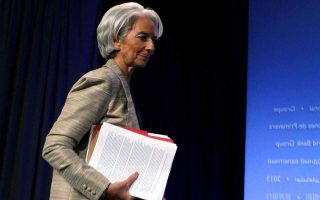The shot from Karlsruhe

On the one hand, Germany’s Federal Constitutional Court could not have chosen a worse time to intervene in the public debate regarding the mandate of the European Central Bank, with its demand for explanations concerning the system of “quantitative easing” which is generally acknowledged as having saved the euro.
On the other, circumstances are ideal for everyone to realize that the European Union today has to choose between survival and dismemberment. In the grip of a pandemic, when huge amounts of money are needed just to limit the damage to society and the economy, when consensus is imperative, the German judges’ decision demands a serious and decisive response.
The case concerns an effort by the economist and founder of the anti-euro Alternative for Germany (AfD) party, Bernd Lucke, and three entrepreneurs to get the court in Karlsruhe to declare that the ECB’s policy violated Article 123 of the Consolidated Treaty of the EU, which prohibits the bank’s purchase of state debt. This would have forced Germany to pull out of the euro. The court found that the German government and the Bundesbank had violated the rights of the complainants by failing to challenge the ECB in its decisions to adopt and implement quantitative easing (PSPP) and by not assessing whether these measures satisfied the principles of “proportionality,” the bank’s basic mandate to keep inflation just under 2 percent.
The German court accepted the 2018 ruling of the European Court of Justice that PSPP did not violate the Treaty but it found that the European Court did not examine whether the ECB had exceeded its mandate. Judging that the ECB did exceed its mandate, it gave the bank three months to explain its position, otherwise the Bundesbank will have to withdraw from the program.
The decision, announced on Tuesday, “does not concern any financial assistance measures taken by the European Union or the ECB in the context of the current coronavirus crisis,” the court announced, suggesting sensitivity to current circumstances. But a national court’s questioning of the European Court, the finding that the ECB exceeded its mandate and the threat to the euro will cause serious problems to the Union’s policies and cohesion.
The Karlsruhe court notes that “the Member States remain the ‘Masters of the Treaties’ and the EU has not evolved into a federal state.” In other words: The governments must deal with the Union’s dysfunction and the challenges of the time, before it is too late.





